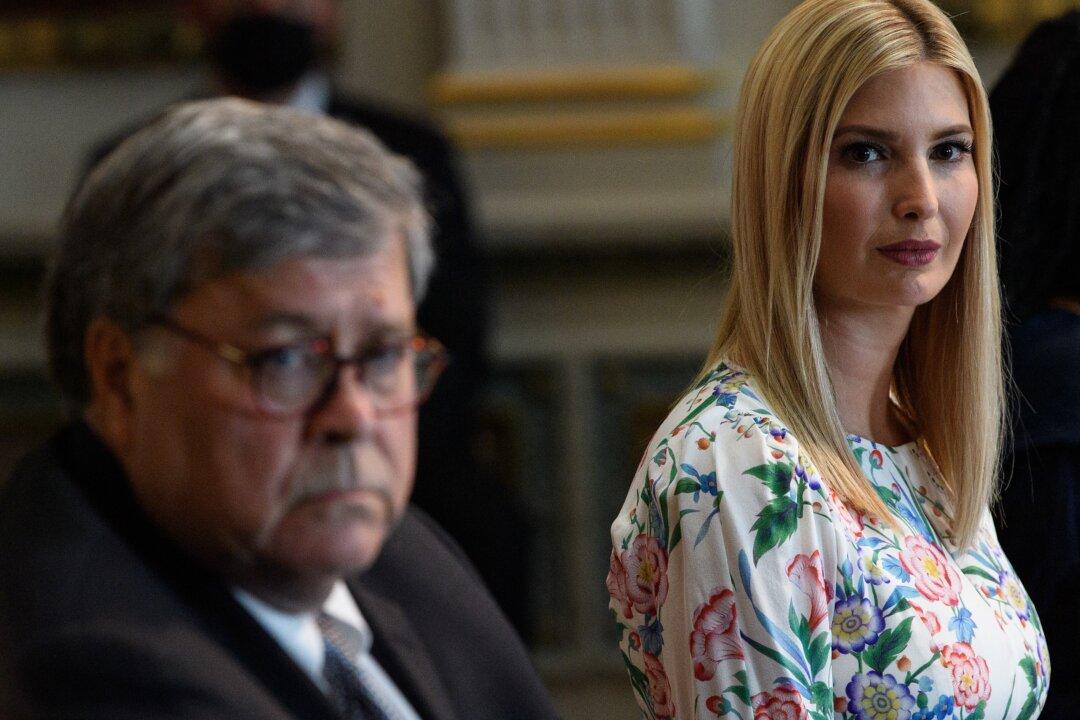The Trump administration on Sept. 21 said that, as part of its continued fight against human trafficking, it has awarded more than $100 million in grants to fund services and programs that combat what is described as modern-day slavery and provide assistance to trafficking victims across the United States.
The Justice Department (DOJ) grants were announced by Attorney General William Barr and President Donald Trump’s daughter and adviser Ivanka Trump, during a roundtable discussion in Atlanta. The funds are being steered to state, local, and tribal jurisdictions, victim service providers, and task forces across the country and will be used to support key research initiatives on human trafficking.




